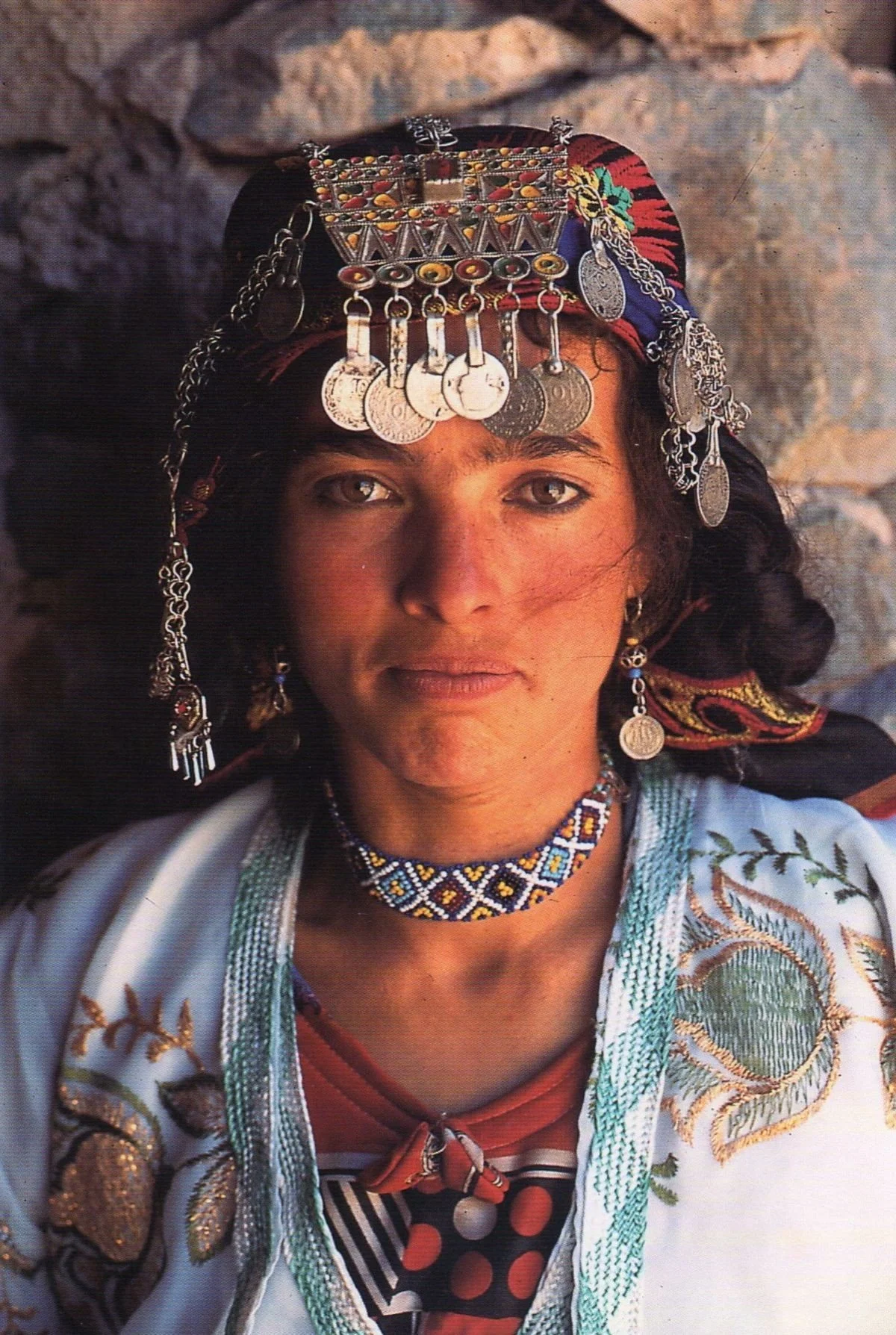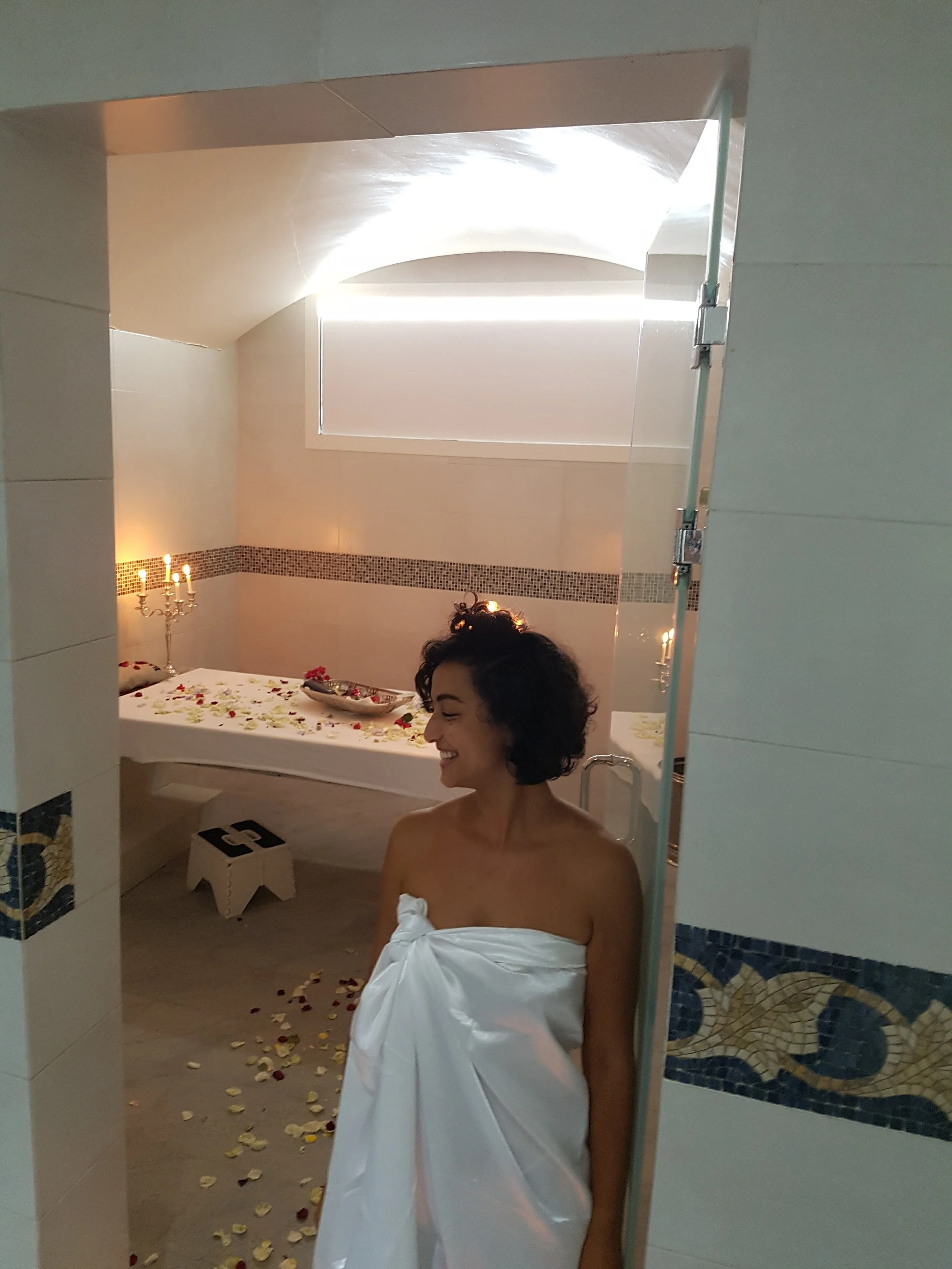Awakening the Berber Feminine: My Heritage, My Strength
I was born into a Berber family, the indigenous people of Morocco. And for years, I have shied away from fully embracing this aspect of my identity.
But, if I believe in karmic cycles, and in the soul choosing its cultural container in every life, then there must be something in my Berber roots that I could observe and embrace.
So, here I am, telling the story of my roots.
I was born into a Berber family, the indigenous people of Morocco.
And at the head of our family was my indomitable grandmother, a woman who wore her queen archetype like a second skin, for better and for worse. She was the matriarch, our anchor, our guiding star.
A family of women, five daughters nurtured under her wings, we were the living, breathing legacy of our vibrant and spiritual Berber culture. I was woven into this tapestry, a thread interlacing with the others, each echoing the stories of my ancestors.
For much of my life, I turned away from this tapestry, dismissed it as uncool, old-fashioned, something to be left behind. I yearned for the West, I wanted to dress like them, talk like them, to walk like them.
At the age of seventeen, I left Morocco to study in France, and never lived there since then, leaving my heritage behind.
But, oh, how life has a way of circling back.
The journey of self-discovery I embarked on in 2017 took me to the outermost edges of my being, and then right back to the center, to the seed, my roots.
It led me back home.
I discovered that the journey of awakening is about accepting. And so, I went back to my roots.
The Berber Woman: beauty, strength, and wisdom
In the Berber culture, women are the carriers of tradition and the bedrock of the family structure. They are known for their strength, resilience, and wisdom.
A Berber woman stands as a beacon of spiritual richness, maintaining customs that have been passed down through generations. The magic of her skincare routines, the shamanic rituals for spiritual well-being, and the mystical ceremonies form the essence of the Berber feminine.
Make-up made from natural elements of the land, silver jewelry, and this unapologetic gaze, facing he camera front, as if she said “I know who I am, I know my strength, I am no intimidated.”
The Beauty Rituals
Imagine being dragged by your mom into a bathroom filled with scents of henna, rose, argan oil and God knew what else! That was my typical Wednesday afternoon growing up. As my mom patted the very un-sexy mixture into my hair, paying close attention to not missing any spot, I grumbled, I kicked, but I eventually surrendered. My mom, she'd look at me and say, "This is a great recipe! One day, you'll understand." And oh, how right she was.
These beauty rituals, as old as the land we lived in, weren't just about looking good. They were about connecting with our roots, cherishing the earth's gifts, and honoring our ancestors.
Berber women care for their skin and hair on a daily basis, using argan oil to hydrate skin and hair, henna to color white hair, Ghassoul masks for oily skin and rose petals to elevate body scrubs. Every week, we go to the Hammam, a public bath, to use all of our herbal recipes to moisturize, nurture, or color the skin and the hair.
The hammam, the ultimate moment of self-care for us.
The Spiritual Rituals
If you wandered into our home on any given Friday, you'd be greeted by the smell of burning herbs and seeds. A cleansing ritual for our home and a tribute to our spirits. It was like a bath for the soul and for the house. Just like smudging with Sage, our recipes healed our energy and those around us.
As a kid, it was just another chore. Today, it's a weekly appointment with myself.
We use musk and coriander seeds for a ritual we call Chebba ou Hermel to cleanse bad energy and the evil eye, the envious gaze of others. My grandmother would take the musk and seeds in her hand, and pat my body while reciting a verse from the Coran. Then, we would throw it in the fire. Sometimes, while she was patting me, she would start burping and sighing, commenting “uuuf, you took on a lot of bad energy, my daughter.”
My mother added on top of this ritual the burning of Sarghine roots, a purifying plant with a divine smell! Today, I still use this root with the following mantra “May my life be as beautiful as this smell”.
The Lila: A Mystic Dance
If I didn’t really like the hair masks and other beauty rituals while growing up, there’s one ritual that fascinated me: the Lila.
My grandmother took my mother and me to some, and I keep vivid memories of ceremonies that filled me with a mix of awe and curiosity.
The Lila is a ceremony and a gathering of women in a sacred space that we call Zaouia or the house of an initiated mother (in our case, my grandmother’s mentor and friend), where women can let go of all their duties, hurts, emotions and thoughts, and go into a state of trance as a way to surrender and release.
I saw my aunties, or some other women, sway to a beat that started quietly and intensified depending on their dance, depending on their needs. Their faces reflected joy, fear, sorrow, and relief.
To the child I was, it was fascinating, and scary at some times when a woman would lose consciousness and enter a state that even the kid I was understood was other-worldly.
Later, and as I developed my own spirituality (and a natural appetance for magical things), I understood this trance dance was a way for us to connect with spirits and with ourselves. It was raw, it was real, it was pure magic.
A sneak peak into what the transe looks like
Embracing the Magic
Growing up, I longed for the West, I craved the freedom and coolness it promised.
And, for a large chunk of my life, I was embarrassed about my roots, about my people. But, you see, our roots — they're what make us who we are.
And if I was to come back to myself, to accept myself, which, to me, is what the process of awakening is all about, then I had to come back to my roots.
Today, I'm hosting a retreat about my people, about the women of my family.
It's incredibly special, it's a way for me to honor the culture I once felt ashamed of, and it's a chance for me to share the magic of the Berber women with the world.
This retreat is for women who want to explore a culturally-different expression of the feminine while uncovering and embodying their own feminine.
If my story stirs something within you, if you're curious about the world of Berber women, I invite you to join me on this journey. It's time to celebrate our roots, our strength, our essence.
For more details, check out the retreat page.



